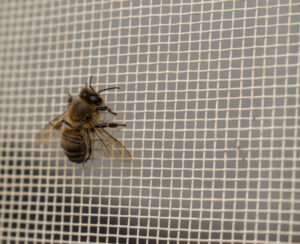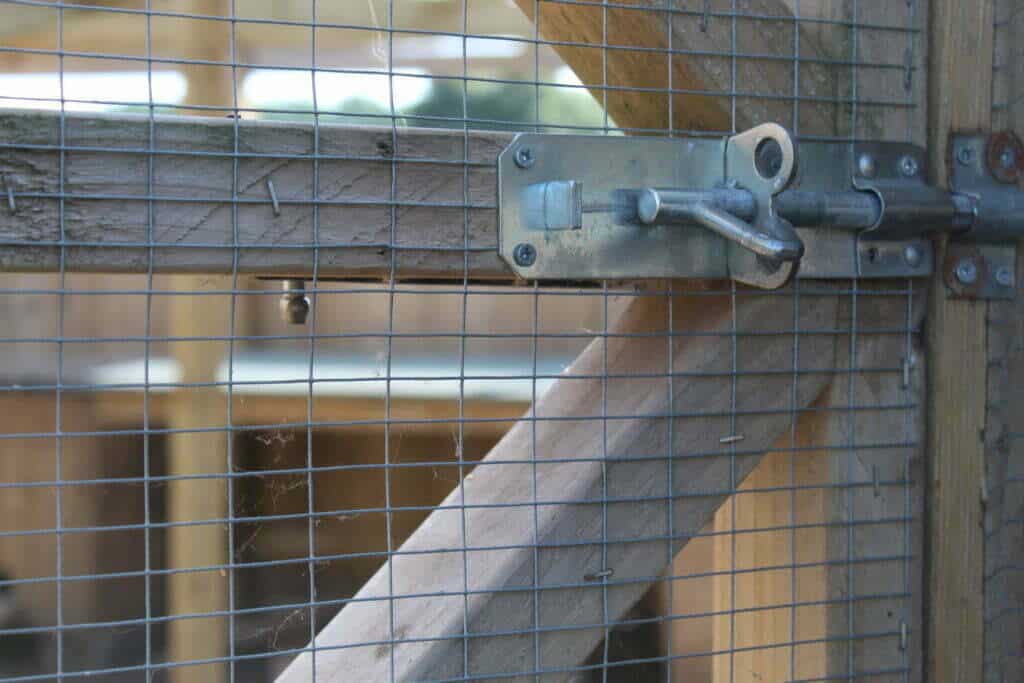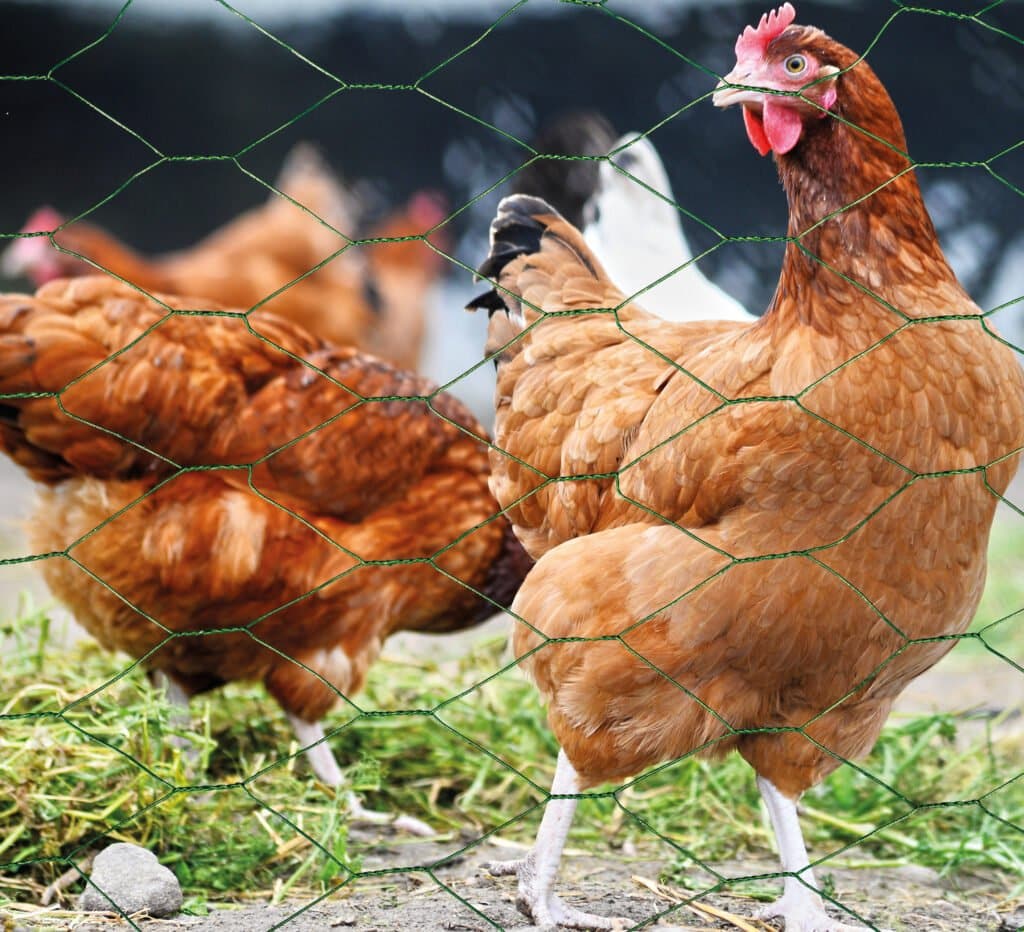









Do you know the difference between weld mesh and woven mesh? They can look very similar at first glance.
If you’re considering using wire mesh, however, even a small distinction has a significant impact. You may pay for a high-quality product, only to find out that particular mesh type won’t work for your project.
How do you know which factors will work best for you? This guide goes over all the essentials so you can shop for wire mesh products with knowledge and confidence.
Wire mesh is an umbrella term. It refers to a piece made from connected or interwoven wires. These wires have small gaps between them, creating a “mesh” or screen pattern.
Wire mesh has several important features:
These factors determine what type of mesh is best for its specific purpose. Wire mesh is ubiquitous in our lives, although we may not notice or know it. Mesh is used across many critical industries, including:
It’s also used for many household purposes. Mosquito nettings, window screens, and yard fences commonly feature wire mesh.
Mesh is distinct because it’s designed to have little gaps. These gaps are also called apertures. Apertures generally range from millimetres to centimetres in length.
Manufacturers can make apertures in the microns, however. Some mesh gaps are so small, they can even stop insects.
Other gaps are much bigger, depending on the mesh’s usage. Chicken wire, for example, has large gaps to ensure a chicken coop gets plenty of ventilation and visibility. The wire mesh also forms a secure fence to keep the chickens in, and predators like foxes out.

Mesh wires are significantly thinner than the materials used in solid pieces. Therefore, it’s usually made from versatile metals and alloys to ensure strength. Common material types include:
Each metal has different functions, drawbacks, and benefits. For instance, galvanised steel has high corrosion resistance. It’s great for countering consistent moisture exposure, but it’s more expensive than other metals.
The wire thickness determines the trade-off between factors like expense, strength, and durability. A thicker wire may be more durable, but may also result in less flexibility or higher expenses. Thickness is also referred to as the wire gauge.
Different countries use different wire gauge standards. For example, the British Standard Wire Gauge (SWG) system uses different numbers and formulas from the American version (AWG).
Both versions use an inverse measurement. The higher the gauge number, the lower the wire diameter. A large number indicates a very thin wire.
An SWG of 1 has a diameter of 7.62 mm. By contrast, an SWG of 42 has a tiny diameter of 0.1016 mm.
Coating refers to additional materials added to the wires for protection. Wire mesh coatings include:
Galvanisation is the process of covering a metal in zinc. If you see the term galvanised steel, for example, it means the wire mesh is made from steel with a zinc coating. Zinc is more resistant to rust and other corrosion forms.
Stainless steel coatings are similar, and also offer higher durability benefits. Stainless coatings use chromium alloys instead of zinc.
PVC coatings are more similar to vinyl or plastic coatings. They are resistant to corrosion and are insulated against electric currents. They’re also available in different colours.
Woven mesh refers to wires interlaced together to form a pattern. The wires cross over and under each other, similar to weaving fabrics.
There are many different weave patterns for wire mesh, including:
Like material, these patterns fulfil certain functions. For example, the twill weave can work with heavier, thicker wires than other patterns.
Welded wire mesh also forms a latticework, like woven wire mesh. With this type, however, the wires are welded together at each intersection.
The result is more of a grid-type pattern versus a weave pattern. It also allows for thicker wire gauges, giving it a broader range of strength and durability. It is less flexible than woven mesh, however.
There are more differences between woven wire mesh and welded wire mesh than their construction. Each type has particular advantages and drawbacks.
Some advantages may even be a disadvantage to your particular project. Weld mesh is strong and inflexible. That makes it ideal for a security fence, but difficult to use in small air filtration devices like smoke detectors.
Woven wire mesh advantages include:
Woven has more options for a finer and more flexible wire mesh. Joint welding is too unwieldy and bulky for thin wire gauges. It would also impede apertures that are very small.
Woven wire mesh’s disadvantages tie into these advantages. The mesh may be too small and fine to support coating. Or the aperture may be too small for a coat layer’s added thickness.
Woven mesh is generally made at a loom, which is fast and efficient. It also cuts down on wasted materials. This contributes to woven wire mesh’s lower price tag compared to similar welded products.
Welded wire mesh advantages include:
Welded mesh supports much thicker gauges and larger apertures. It can support a wide range of coatings and coating thicknesses. It’s also stronger and more durable in most instances.
Its strength, however, can also be a drawback. Welded mesh is durable but inflexible, so it can bend or break under the right pressure. Even a slight bend may mean total mesh replacement.
Welded wire mesh is made using more complicated machine techniques. This adds more costs in labour and material waste.
Woven wire mesh’s flexibility allows it to bend into many different shapes without breaking. It also supports fine weaves, so it’s great for projects that require high precision. This includes:
Its tiny apertures also make it ideal for pest and animal control. If you need to protect your garden, for example, this mesh screen can keep all sorts of pests out. These include:
Woven wire mesh has the option to be very small. This makes it ideal for smaller devices such as machine parts, circuitry, and appliances.
This wire mesh type is also good for certain fencing types. Small and medium-sized livestock fences can benefit from a strong but flexible woven pattern. It’s also more complimentary for decorative or architectural fences.
Weld mesh is very useful in industries with strict tensile requirements. This includes:
Welded mesh fencing is also good for holding animals larger and stronger than usual. For example, a zoo may choose a welded wire mesh fence for its elephants and hippos.
Welded mesh is also popular for security. Its inflexibility makes it hard to climb, and its strength makes it less tamper-proof. It’s also more resistant to inclement weather such as high winds and floods.
.
Households and small businesses may find it difficult to shop for wire mesh. Most large corporations already know their industrial standards. Mesh manufactures tend to focus on lucrative large-scale contracts over selective small-scale shopping.
A reliable mesh company will offer several benefits:
This allows small-scale shoppers to make purchases more tailored to their needs. For example, you may simply need wire mesh to protect a few tree trunks on your property. You don’t want to be forced into a £1,000 minimum order with a yearly contract for such a small project.
Wire mesh creates an effective barrier while still allowing for visibility and ventilation. This makes it great for a wide range of uses, from fencing to filters.
Welded mesh and woven mesh are two types of wire mesh that fulfil different functions. It’s important to know when to use either type for your project needs.
Are you searching for top-notch wire mesh products? Our company focuses on high-quality and personalised customer service for individuals and small businesses.
As always, thank you for checking out our blog. We hope that this helps you with your project.
Our goal for our blogs and help guides is to answer as many questions as possible to help to explain the possibilities of mesh to our customers. Contact our team today if you have any questions at all. We are always really keen to help in any way that we can.
The largest range of wire mesh, chicken wire, wire fencing, woven wire mesh and perforated metal products in Europe, delivered direct from our Warrington warehouse.




Website by: Beech Web Services | Terms and Conditions | Cookie Policy | Privacy Policy | Website Terms and Conditions